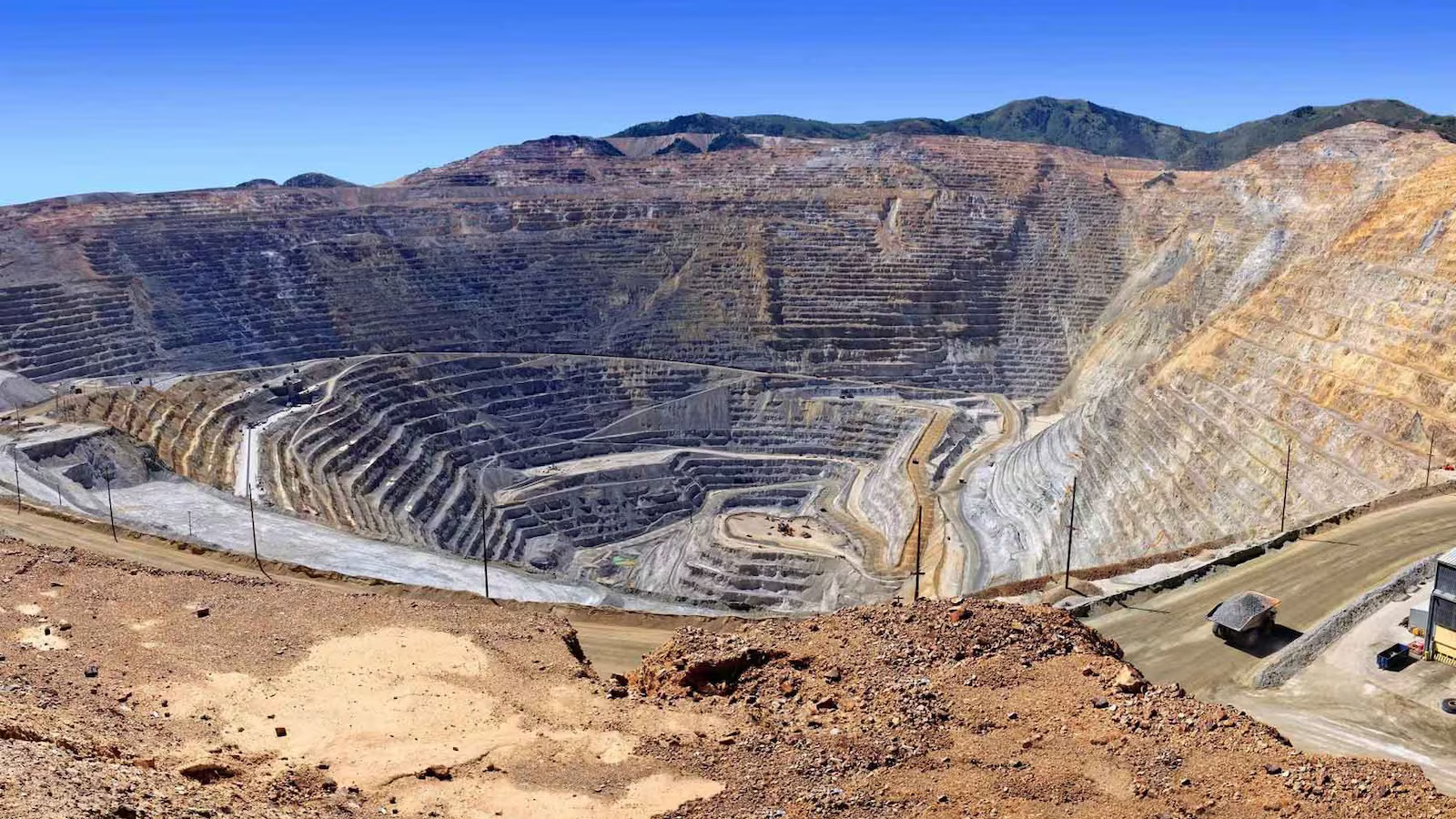The United States’ global economic and technological leadership has long been fueled by the production and consumption of minerals. From the batteries in electric vehicles to the components in our military aircraft, our country depends on access to a set of critical commodities sourced from around the world.
The advent of artificial intelligence and other frontier technologies is further driving demand for critical minerals. For America to keep up with its current growth in new technologies, it needs 25 times its existing graphite production capacity and a radical increase in the extraction of other critical minerals including rare earth elements, cobalt, nickel, lithium, and many more.

Alarmingly, most of the world’s mineral extraction and refinement are controlled by our geopolitical rivals. According to a report by the Baker Institute, China accounts for over 60% of the extraction and almost 90% of the refinement of critical minerals. China is the world’s largest supplier of twenty-seven minerals and materials deemed critical to U.S. national security.
China has already leveraged its market control to prevent the U.S. and its allies from obtaining the minerals needed to produce advanced technologies. In December of last year, China announced that it was halting the export of seventeen minerals used in the production of electronics—jeopardizing American industry and national security. In response to these developments, the U.S. government has prioritized developing and protecting the critical mineral supply chain. Few states are prepared to fill this demand better than Utah.
Utah’s geographic features make it home to a vast number of mineral deposits throughout the state. According to a report by the Utah Geological Survey, Utah produces or can produce forty of the fifty minerals defined as critical by the Department of Energy. Additionally, Utah is one of the largest producers of critical minerals in the U.S., being the only domestic source of magnesium production, one of two states currently extracting lithium, and the world’s largest producer of beryllium. These efforts are vital to U.S. national security and will become more important as geopolitical tension threatens mineral supply chains around the world.
Energy Fuels, a U.S. company with important mining and processing operations in southeastern Utah, is the largest producer of uranium in the county, and the only domestic supplier of vanadium. The company recently announced that it achieved commercial production of separated neodymium-praseodymium, important rare earth elements which go into electric vehicles, wind turbines, and the F-35 fighter. This development will help America re-shore mineral extraction away from China.
“The re-shoring of technological know-how and expertise in this extremely important field is critical to national and economic security,” said Energy Fuels president and CEO, Mark Chalmers. “Energy Fuels has an inherent economic advantage in producing these critical minerals due to our access to low-cost rare-earth minerals supply, advanced technical knowledge from a 40-year history of processing uranium ore, and the capabilities and licenses at our White Mesa Mill in Utah. It’s an exciting time for domestic critical mineral production.”
Brian Somers is president of the Utah Mining Association, which has advocated for this industry since 1915. “As mineral supply chains are threatened by hostile foreign actors, Utah is fortunate to have local production of critical minerals through world-class mining companies like Energy Fuels, Rio Tinto Kennecott, Materion, and more,” said Somers. “With its rich and diverse mineral estate and its recent ranking by the Frasier Institute as the number one mining jurisdiction in the world, Utah is also poised to substantially expand the responsible and sustainable extraction of mineral commodities—reshaping how America sources the minerals which are critical to our nation’s economic and national security.”

Although Utah hosts a variety of large multinational corporations leading in mineral extraction and refinement, there are also many local companies operating in this space. GlycoSurf, a specialty chemicals manufacturing company, based in Salt Lake City, produces several novel chemicals for the extraction of critical minerals. GlycoSurf is primarily focused on the synthesis of glycolipids, a novel class of surfactants used in a variety of applications. GlycoSurf is the only company in the U.S. that generates its glycolipids using a synthetic approach —making it easily customizable for specific applications and one of the most chemically pure products on the market. Their R&D and collaborations at GlycoSurf will lead to products that play a vital role in the extraction of heavy metals from aqueous mining operations. Furthermore, GlycoSurf’s products are completely biodegradable and non-toxic, ensuring the safety of Utah’s natural resources.
“Our chemicals play an important role in not only assisting with the extraction of critical minerals but also contributing to the overall mining ecosystem here in the state,” said GlycoSurf’s CEO Chett Boxley. “In order to have a thriving critical mineral industry, you have to have a variety of services available within the state to supply the prerequisite materials to support mining operations. Glycosurf hopes to ensure that Utah’s mining industry doesn’t need to look for chemicals outside of Utah.”
The critical minerals industry has garnered support from Utah’s elected officials. “Utah is a key player in the mineral extraction industry thanks to our critical mineral deposits, skilled workforce, and strategic international partnerships,” said Utah’s Speaker of the House Mike Schultz. “As geopolitical tensions strain supply chains, Utah can lead out to ensure our resources not only meet domestic needs but also lessen our reliance on other foreign sources.”

47G, Utah’s aerospace and defense industry group, is bolstering these efforts by administering the EDA Tech Hub Strategy Development Grant. The grant is focused on five key initiatives that contribute to the overall success of the sector, including reducing the time for permit acquisition, determining solutions for gaps in the workforce, accelerating new technology adoption, including underrepresented demographics in the industry, and connecting established companies with small businesses. The grant is a joint effort between multiple stakeholders, including the Governor’s Office of Economic Opportunity, the Utah System of Higher Education, the Regional Economic Development for Eastern Idaho, and other industry partners.
“Utah’s and Idaho’s collaborative nature, technology partners, and geographical assets can provide a significant domestic supply of these resources to ensure our economic independence and national security, as well as being a model for other regions in the nation,” said Guy Letendre, Vice President of Manufacturing and Minerals at 47G. “The work being done through the EDA Tech Grant is vital to the overall growth of critical mineral extraction and national security as a whole.”
47G is the nation’s premier ecosystem for aerospace, defense and cyber companies in Utah, with a mission to foster talent, fund entrepreneurship and fuel innovation. The 47G ecosystem comprises over 140 companies and 20 academic institutions working to solve critical national security challenges. Want to learn more? Visit the website at 47G.org, follow 47G on LinkedIn and X, and subscribe to 47G’s YouTube channel.



